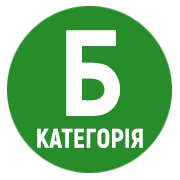Університети як рушійна сила становлення моделі кругової економіки у Китаї
Анотація
Перехід до моделі економіки замкненого циклу або кругової економіки вимагає розуміння та прийняття нових принципів з боку суспільства. Університети та коледжі є однією з рушійних сил у наближенні до нової моделі. Університетська освіта для кругової економіки – це нова концепція, яка відноситься до різновиду освіти протягом усього життя з використанням усіх освітніх ресурсів, яка встановлює в якості ключових напрямів освіти, по-перше, випуск професіоналів для введення в дію кругових бізнес-моделей, по-друге, підвищення свідомості громадян. В той же час, в реальності існує безліч перешкод на шляху до розвитку університетської освіти у відповідності до потреб нової моделі. Ця стаття присвячена з’ясуванню основних бар’єрів розвитку університетської освіти для кругової економіки в Китаї.
Посилання
2. Yao W. (2006). Analysis of China’s circular economy education. Technology Economics, 2, 19–20.
3. General office of the national development and reform commission. (2013). Notice on issuing special funds for circular econ-omy development to support the implementation plan of national circular economy education demonstration base construction. Renew-able Resources and Circular Economy, 6 (5), 1–2.
4. Hou X. (2017). Restriction and guarantee of circular economy education – a case study of Tianjin Ziya circular economy in-dustrial zone. China Journal of Commerce, 10, 172–174.
5. Zhang Y., Jiao S., & Wang S. (2014). The path selection of public participation in circular economy education in China. Productivity Research, 4, 100–104.
6. Andrews D. (2015). The Circular economy, design thinking and education for sustainability. Local Economy, 30 (3), 305–315.
7. Leube M., & Walcher D. (2017). Designing for the next circular economy: an appeal to renew the curricula of design schools. The Design Journal, 20 (1), 492–501.
8. Fonseca L., Portela A., Duarte B., Queirós J., & Paiva L. (2018). Mapping higher education for sustainable development in Portugal. Management & Marketing, 13 (3), 1064–1075.
9. Hall N., & Colby F. (2018). AMFI’s reality school: a circular economy agenda for fashion education. Art, Design & Communi-cation in Higher Education, 17 (1), 11–24.
10. Andara A., Belver R., Salvador M., & Nicolás R. (2018). Roadmapping towards sustainability proficiency in engineering edu-cation. International Journal of Sustainability in Higher Education, 19 (2), 413–438.
11. Kopnina H. (2019). Green-washing or best case practices? Using circular economy and cradle to cradle case studies in business education. Journal of Cleaner Production, 219, 613–621.
12. Nunes B., Pollard S., Burgess P., Ellis G., Rios I., & Charnley F. (2018). University contributions to the circular economy: professing the hidden curriculum. Sustainability, 10 (8), 2719.
13. Fiselier E., Longhurst J., & Gough G. (2018). Exploring the current position of ESD in UK higher education institutions. Inter-national Journal of Sustainability in Higher Education, 19 (2), 393–412.
14. Slobbé C., Mirosa M., & Thomson C. (2017). University foodservices’ potential for providing environmental education to stu-dents. Nutrition & Dietetics, 74(2), 191–199.
15. Cui X., Di Y., Zhou C., Liu X., Nan N., & Xu S. (2018). Training mode of applied talents in RRSE from the perspective of cir-cular economy. Renewable Resources and Circular Economy, 1, 12–15.
16. Liu X., Li R., Zhou C., & Cui X. (2017). Construction of curriculum system of Resource Recycling Science and Engineering major serving local economic construction. Renewable Resources and Recycling Economy, 10 (12), 6–9.
17. Gong J., Wei Q., Miao N., & Xin L. (2010). The development strategy selection of higher education under the legal back-ground of circular economy. Journal of Educational Academic, 1, 56–57.
18. Xue J., Hu S., Gao Y., Li L., & Zhang W. (2018). Problems and countermeasures in the teaching of clean production and circular economy. China Metallurgical Education, 6, 52–54.
19. The national bureau of statistics of China. China statistical yearbook 2018. available at: http://www.stats.gov.cn/tjsj/ndsj/2018/indexeh.htm.
20. Li L., & Gao J. (2019). The concept and practice of general education in application-oriented universities. China Three Gorges Tribune, 3, 101–104.
21. Yue W. (2013). Practice and application of school-enterprise practice education base in circular economy – a case study of faculty of chemistry and chemical engineering in Xuzhou University of Engineering. Industrial and Science Tribune, 12 (24), 148–149.
22. Lin Y., & Shi G. (2013). How to operate and manage environmental education venues in Japan. Environmental Education, 10, 36–41.








